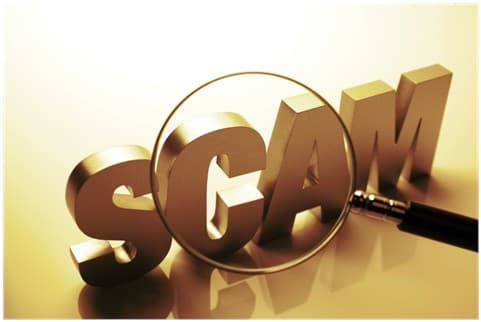- Mortgage fraud is usually run by insider players.
- They target both homeowners and homebuyers.
- If it is too good a deal, then Beware of a mortgage scam.
Mortgage Fraud - Why Should You Care?
Mortgage fraud is a major concern for mortgage lenders, as they attempt to protect themselves from bad loans. This is especially true in areas that were hit hard by the housing market meltdown, such as Southern Florida, that are beginning to show signs of an early housing recovery.
However, why should you be concerned?
Well, the truth is that some mortgage frauds target homeowners and others homebuyers. You may be offered a great deal that is too good to be true. Well, the truth is that it is most likely not such a great deal. Anytime a lender receives false information on a loan document (or application), then there is the possibility of mortgage fraud. This includes information about your income, debts, and down-payment.
Although "professionals" using a tight circle of acquaintances run most mortgage scams, you want to be sure that you are not caught up in their illegal business. In order to help you deal with your mortgage or buy a home, learn about:
- Different types of Mortgage Frauds
- Homeowners: Beware of Loan Modification and Foreclosure Prevention Scams
- Buyers: Beware of "Sweet Deal"
Types of Mortgage Frauds
Mortgage Fraud covers a wide field. It can involve a group of inside players (real estate agents, lawyers, appraisers, bank officials) running against a lender or against innocent consumers.
The first thing that you show keep in mind is to be suspicious of high-pressure sales tactics, upfront fees before receiving services, and a deal that is not comparable to the going market. Oftentimes in an unstable market, such as one with a sudden downswing or upswing, deals are harder to judge, and buyers are more vulnerable to frauds.
Here is a short list, as provided by the FBI, of the most common mortgage fraud schemes:
- Foreclosure rescue schemes
- Loan modification schemes
- Illegal property flipping
- Builder bailout/condo conversion
- Equity skimming
- Silent second
- Home equity conversion mortgage
- Commercial real estate loans
- Air loans
Key Fact
The FBI reported that the reporting of suspicious mortgage related activity has increased from 6,936 reports in 2003 to 93,508 in 2011. The reported activity had a dollar loss of over $3 billion in 2011.
While some of these scams are sophisticated and involve accomplices inside the industry, others rely on the good faith of innocent people to play along with a seemingly honest deal.
Tip
Any time you withhold information or provide inaccurate information on your mortgage loan application and loan documents, you are in jeopardy of committing mortgage fraud.
Homeowners and Mortgage Fraud
Mortgage fraud scammers often target homeowners in distress. This includes homeowners seeking a mortgage modification or other foreclosure prevention. Here are a few types of mortgage frauds aimed at homeowners:
- Loan Modification Scam: If you are falling behind in your mortgage payments, then you should immediately contact your mortgage servicer. There are various mortgage foreclosure alternatives, including loan modification programs, such as the HAMP loan modification program. Beware of third parties offering assistance in obtaining loan modifications. Upfront fees are a strong warning of a fraud.
- Mortgage Foreclosure Avoidance: Any borrower who is facing foreclosure is facing a lot of pressure to find a solution. Stay away from investors offering creative solutions to help you stay in the house, while transferring title to a third party. Once again, work with your servicer, and if necessary seek legal assistance.
- Illegal Property Flipping: If an investor suddenly offers a high price to help you get out of the loan, then take a step back. These investors are probably trying to obtain a loan based on a fraudulent appraisal and/or loan information. If you are offered a kickback, then refuse it and report the activity to the FBI.
Homebuyers and Mortgage Fraud
The most important thing to keep in mind is always provide accurate information in your mortgage application and loan documentation. Otherwise, you may be committing mortgage fraud.
Here are a few areas that can be problematic:
- Gifts: Anytime you receive money that will be paid back, you cannot report those funds to the lender as if they are a gift. Make sure that you correctly report all downpayment funds.
- Kickbacks: If the home seller offers money, after the deal (or at closing), then this must be reported in the purchase contract. If it isn't, then it is mortgage fraud.
- Silent Second mortgage: If you receive money for the down-payment, then report it. If the seller offers you a second mortgage that isn't recorded, then back away from the deal.
- Misleading information: Make sure that you accurately report your income, your residence (owner occupied or investment), and all other information in your loan documents.
Entering into a home purchase requires good preparation. In order to qualify for a mortgage loan with the best mortgage rates, you need to build up your credit, downpayment, and lower your debt load.
Quick Tip
Take advantage of today's low mortgage rates. Get a mortgage quote from a pre-screened Bills.com mortgage provider.
Bottom Line: Mortgage Fraud - Beware and Stay Away
Although mortgage fraud is a common occurrence, it is the exception. For most homebuyers and sellers, mortgage fraud does not play any role in their transaction. However, for those who are approached by a mortgage fraud scheme, it can be a very costly experience.
No matter how good or sweet a deal may seem make sure that it is legal.
